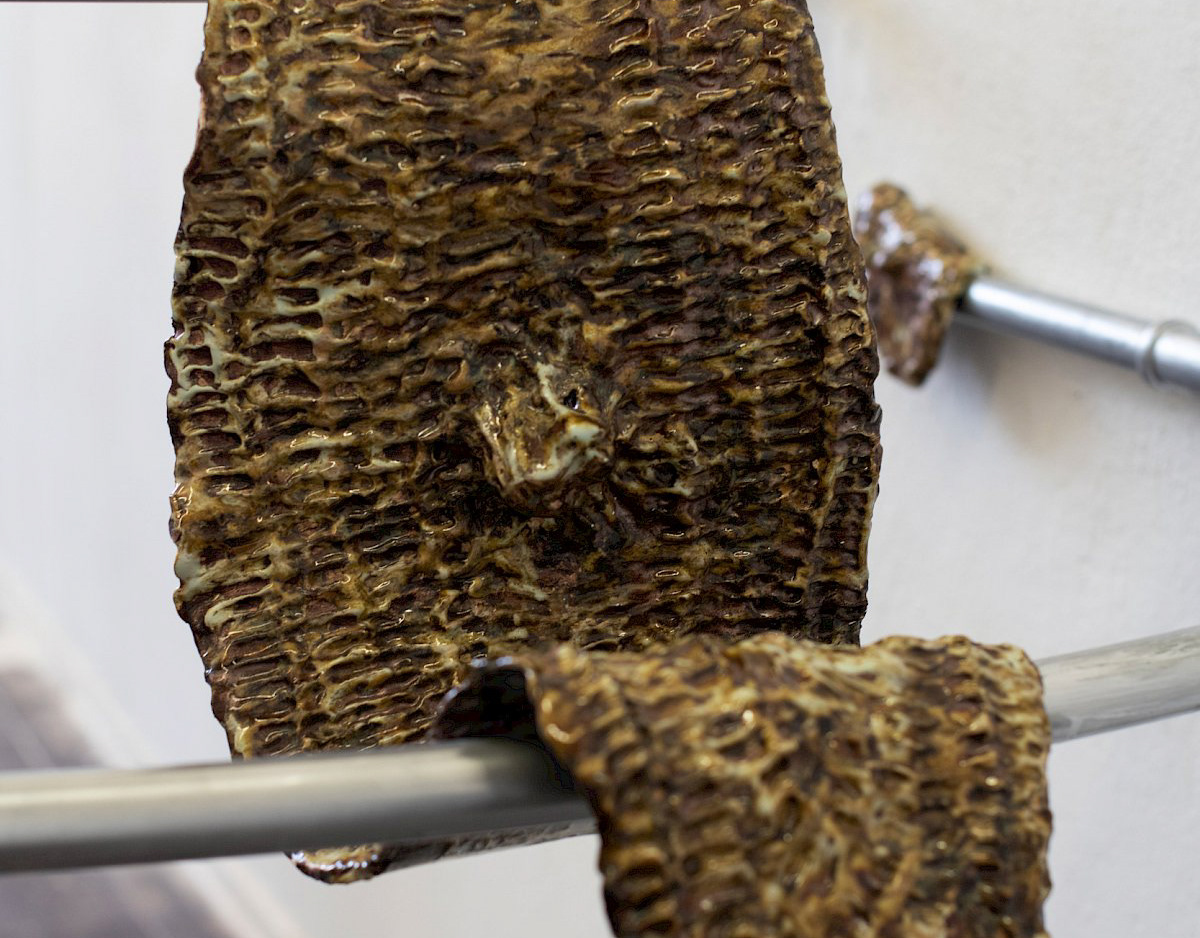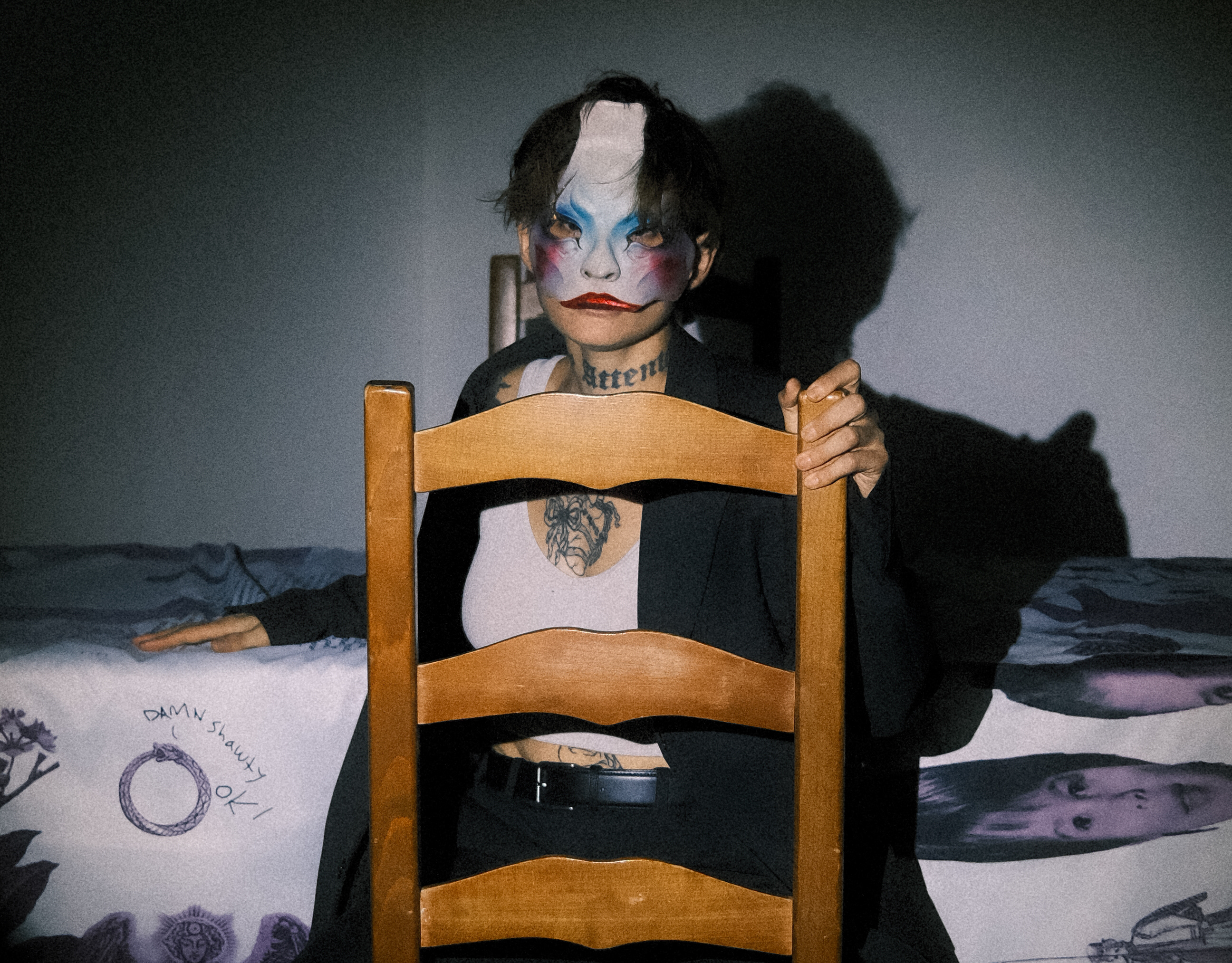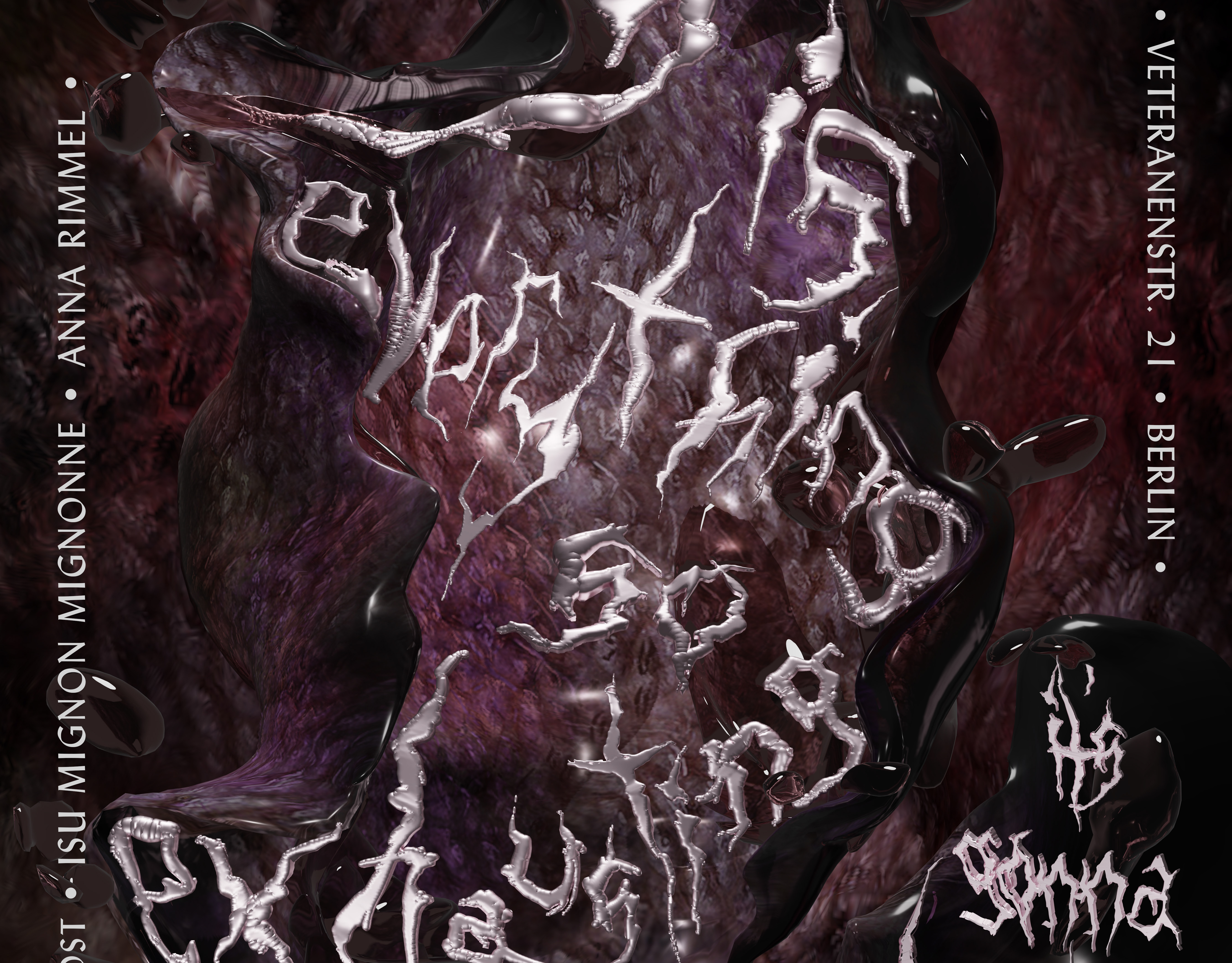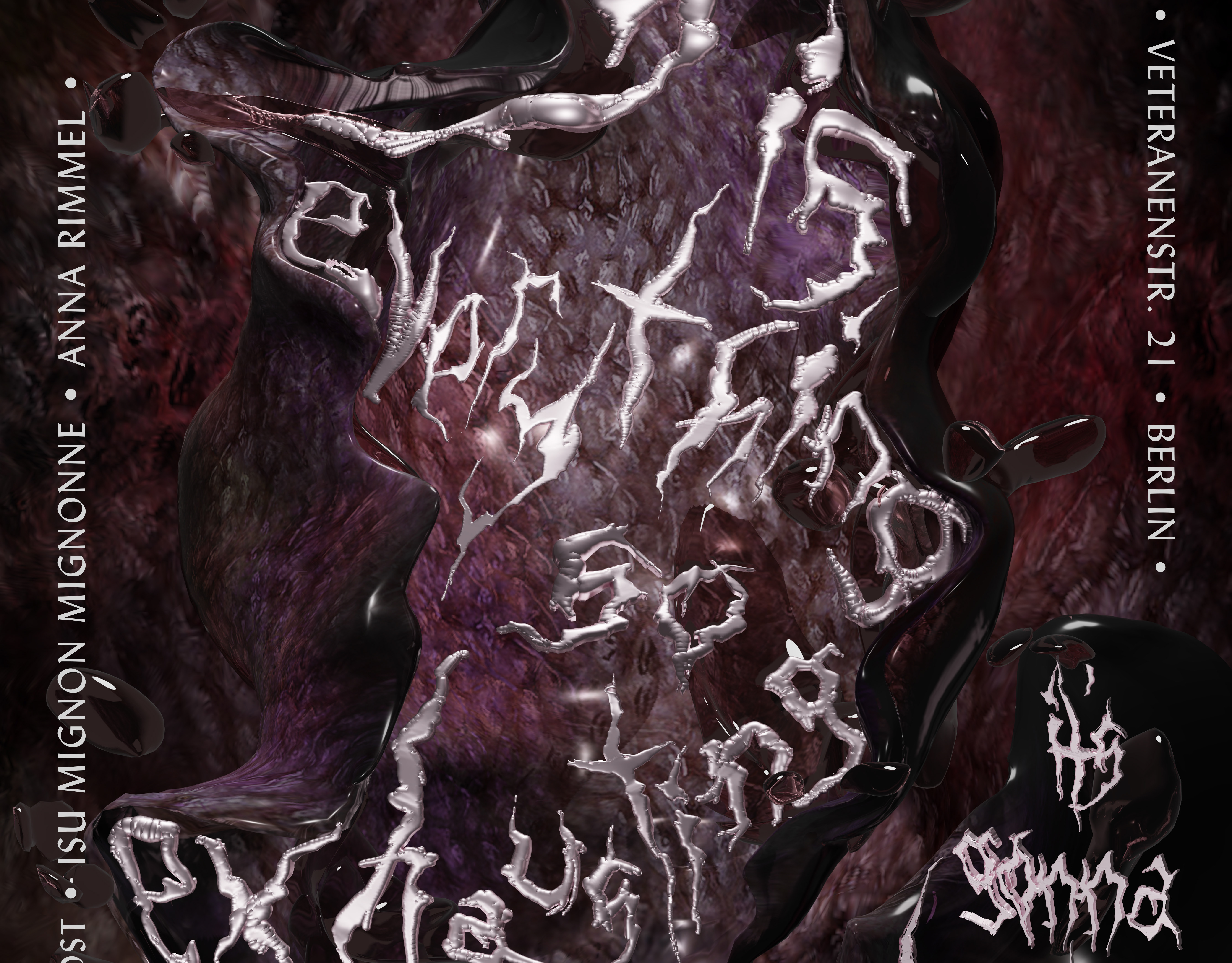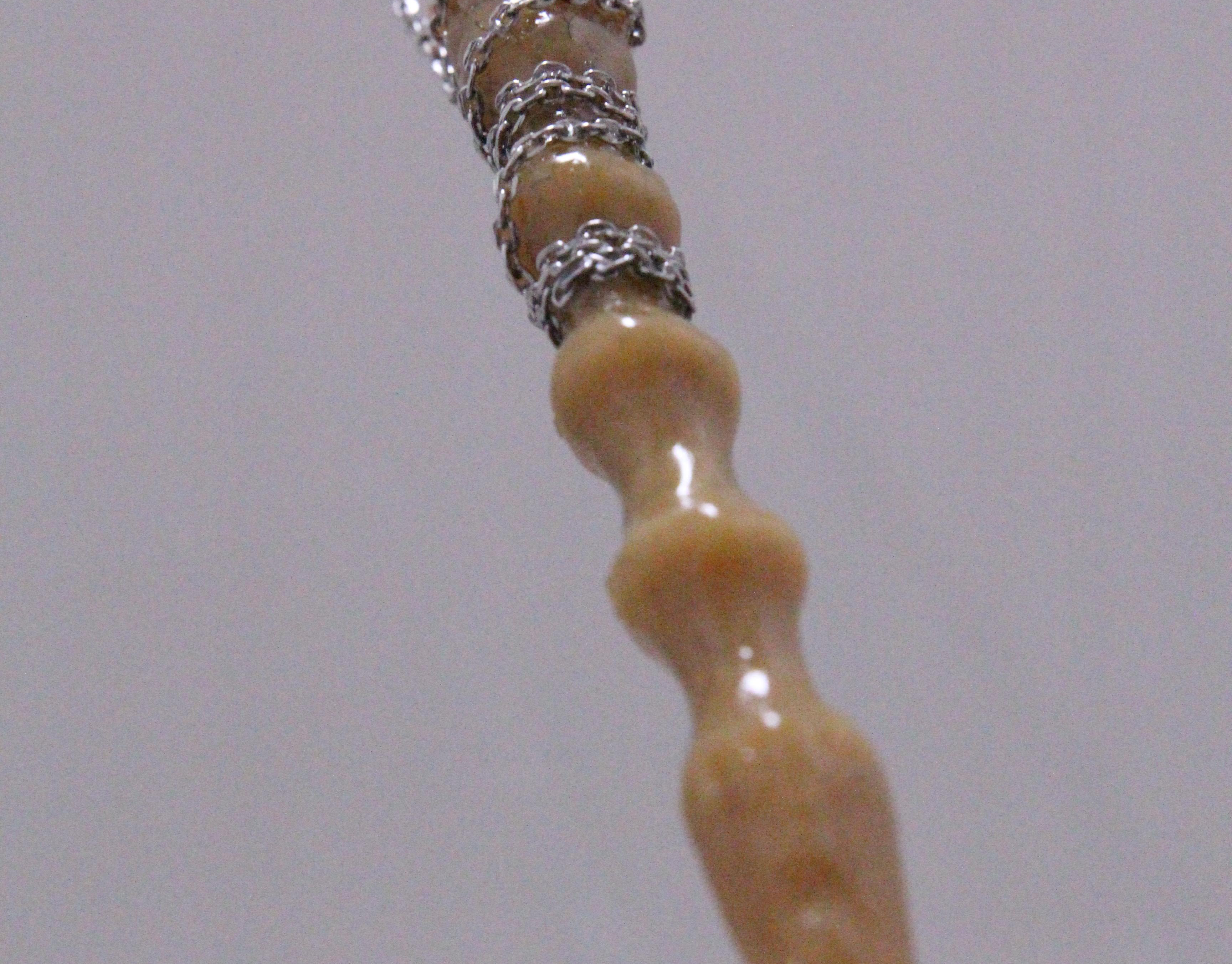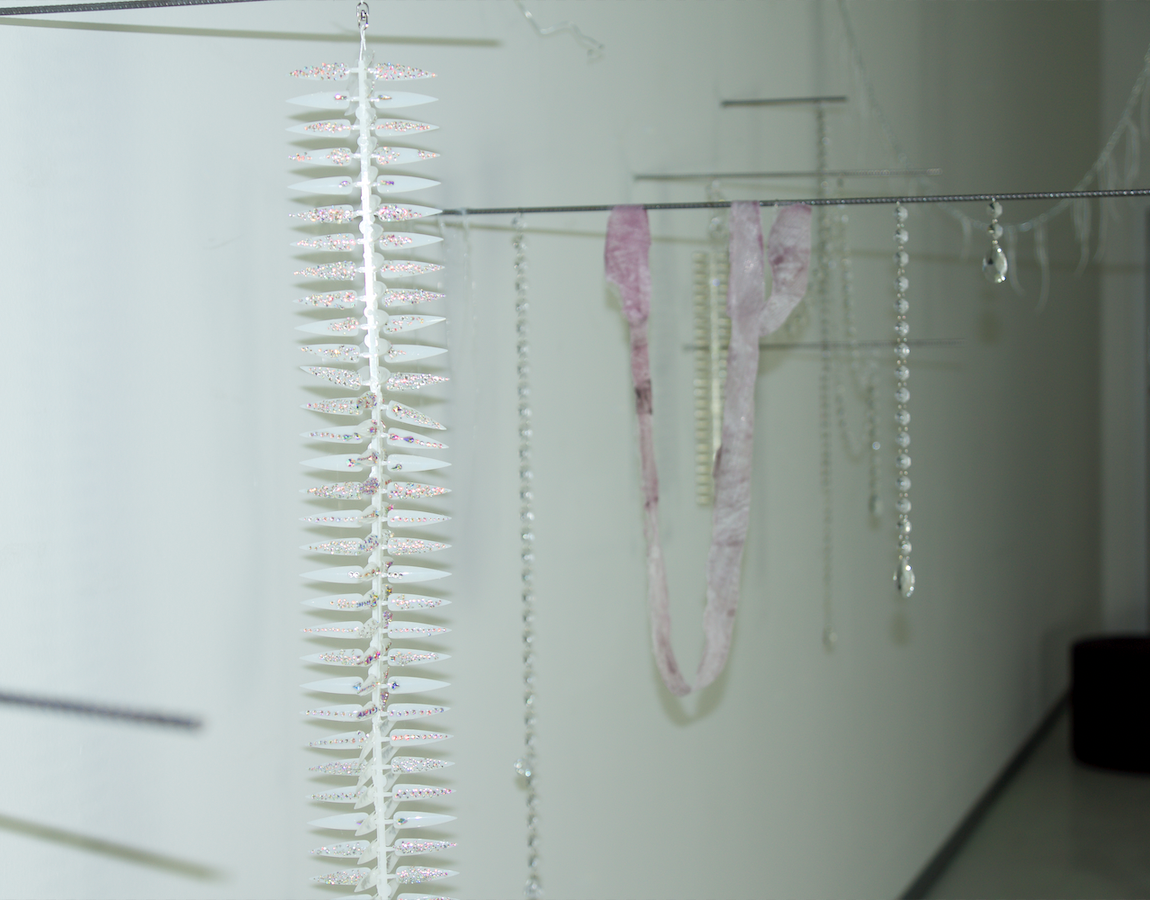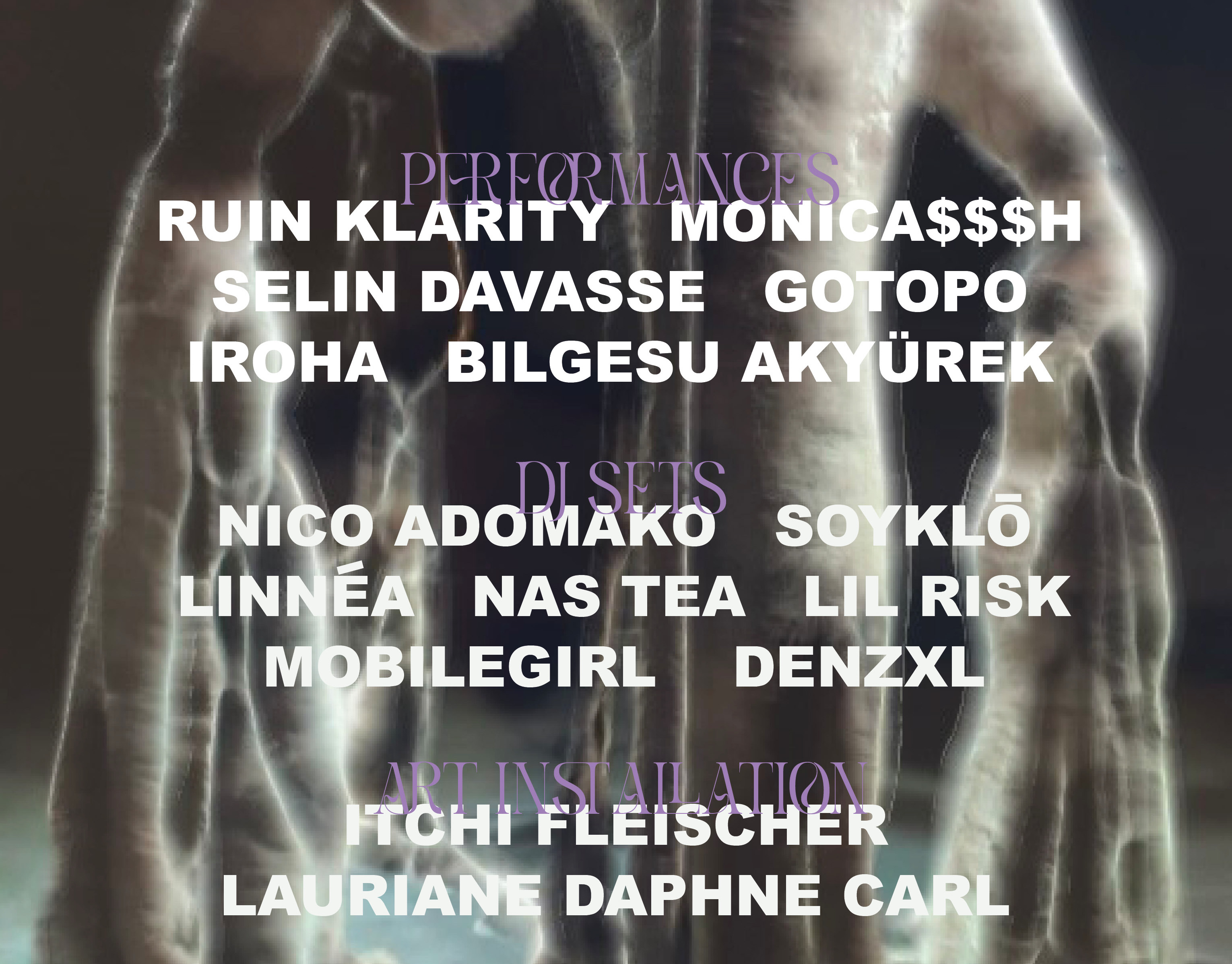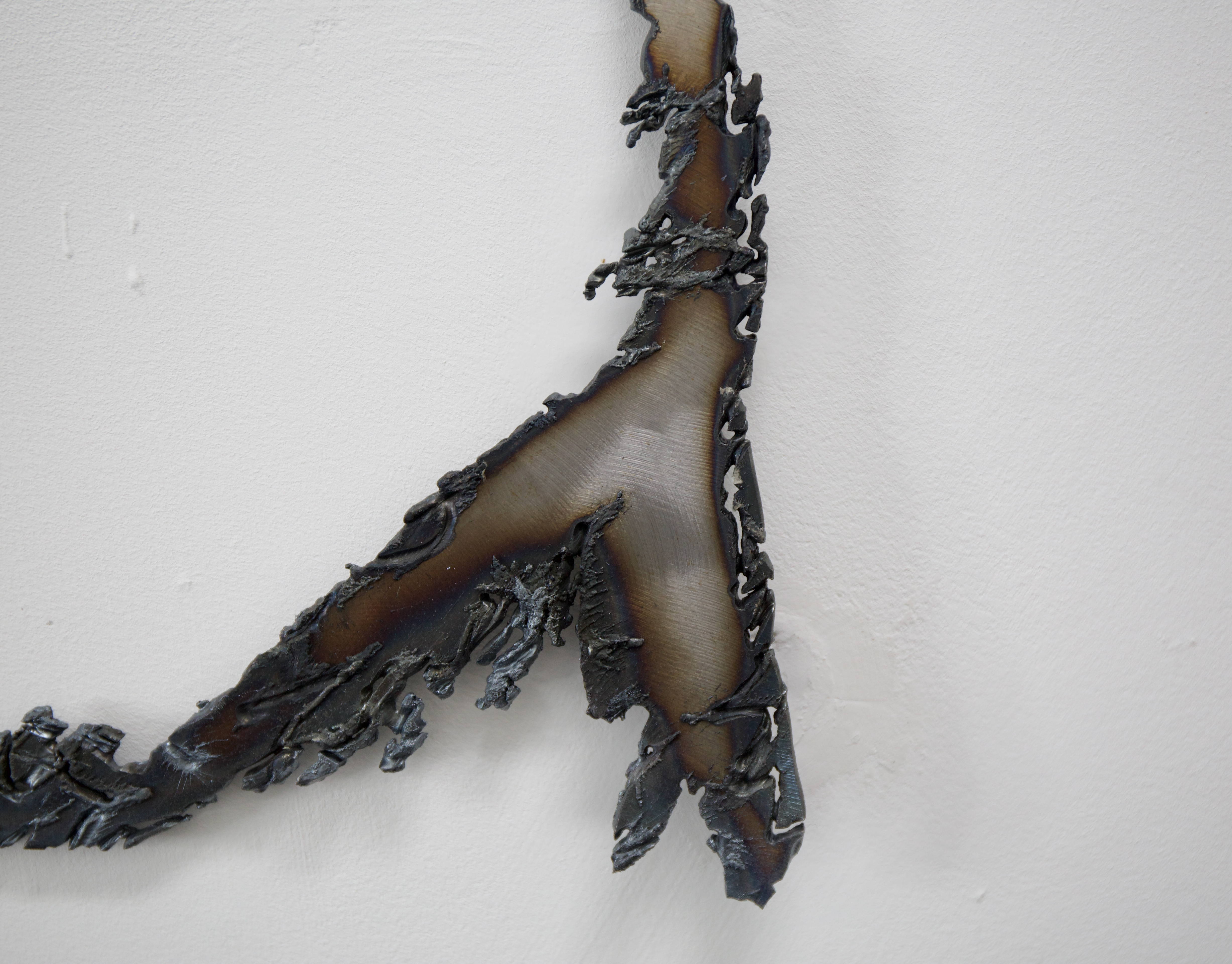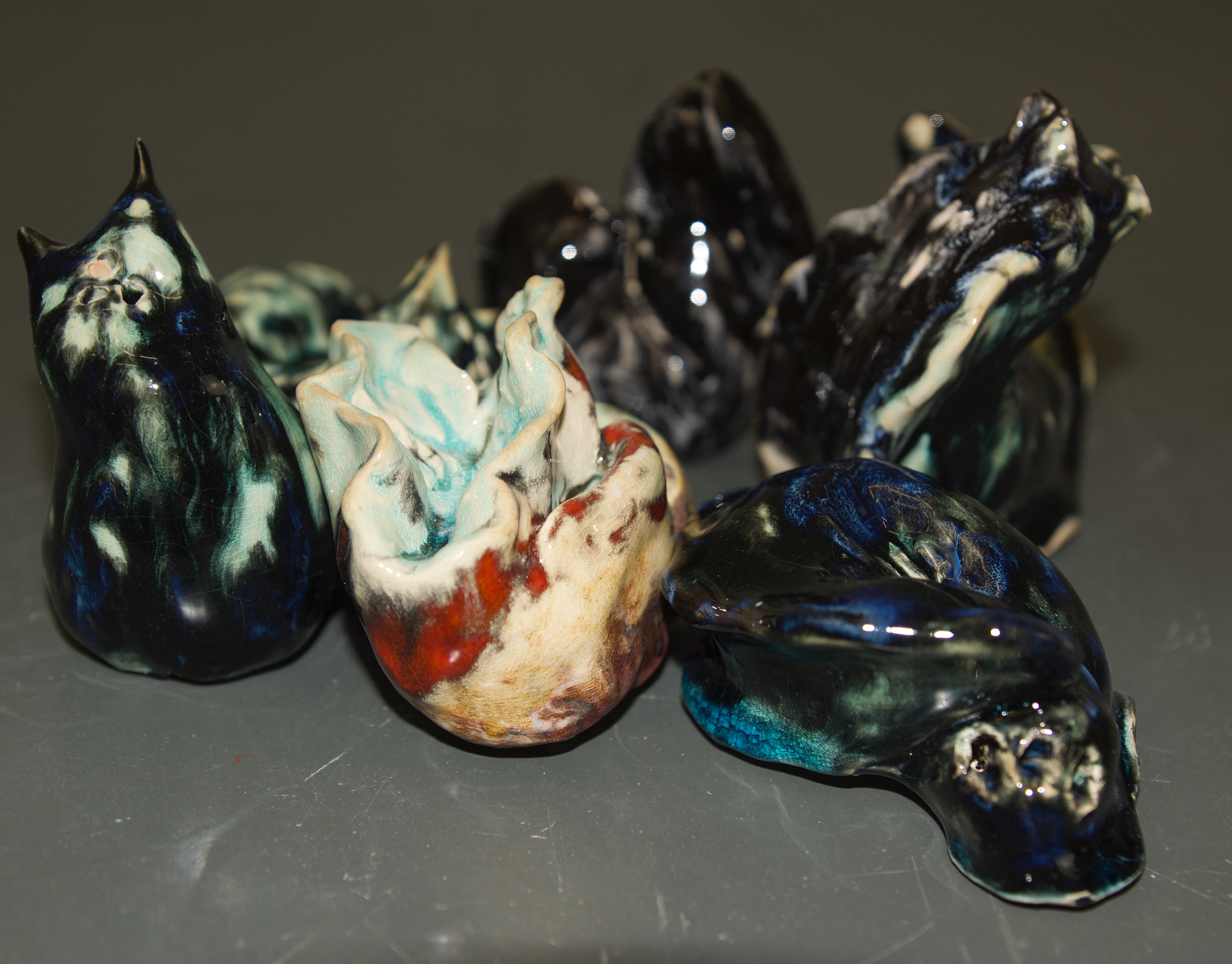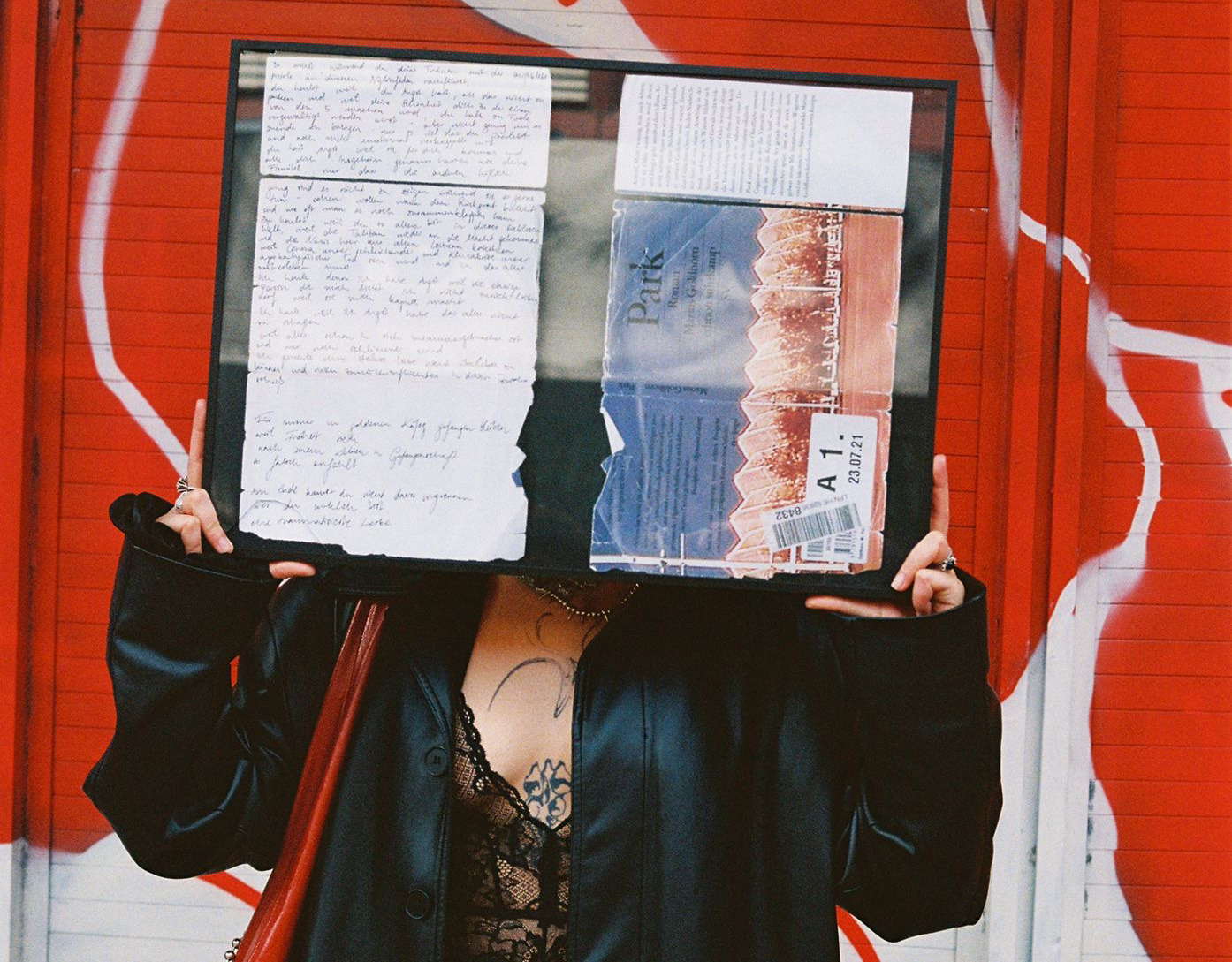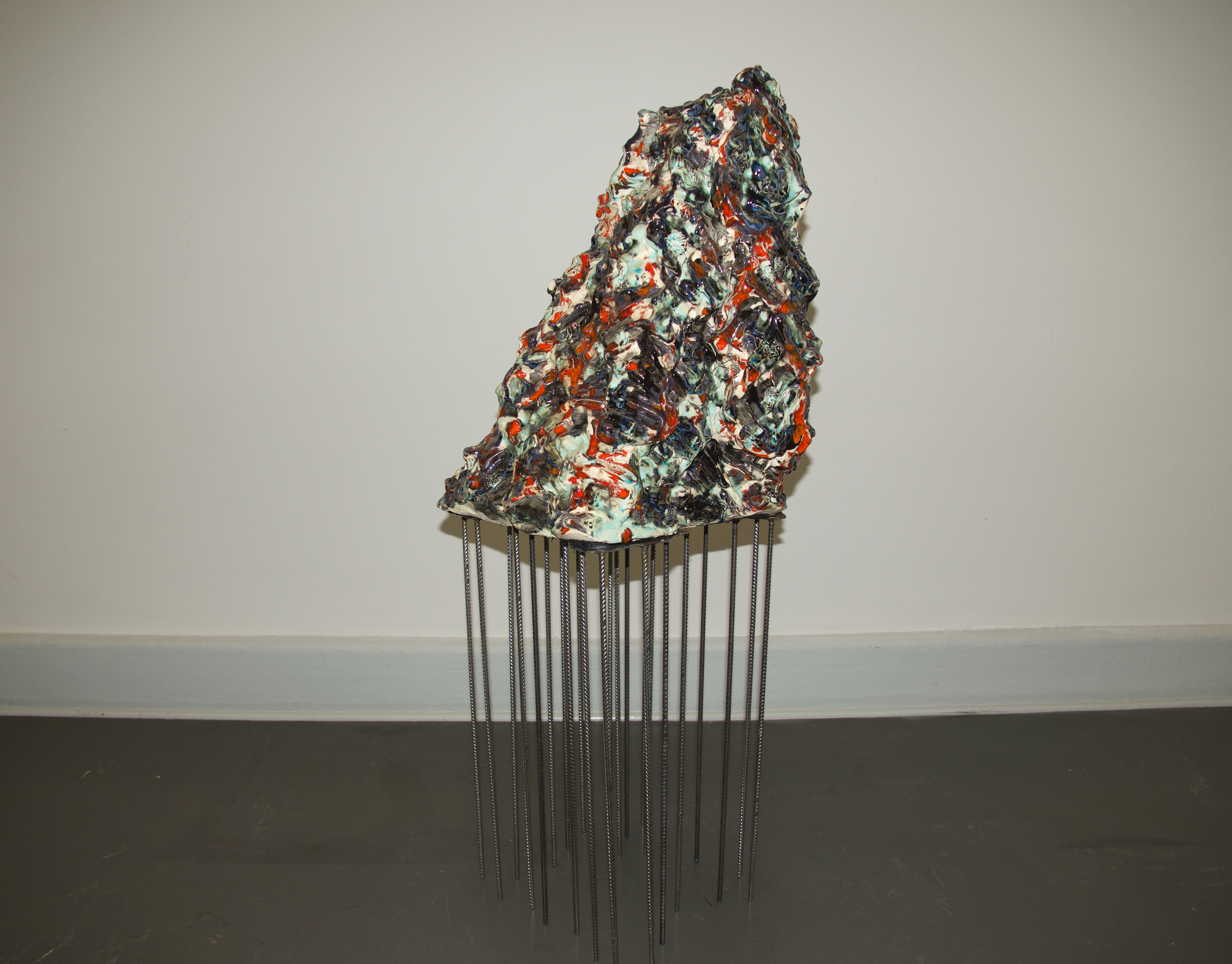sculpture, 540 x 250 x 500 - 1300 x 200 x 200 mm
steel, soap fused with goat milk, coal (from the fire the steel was forged in), olive oil, blood, medical herbs, flower blossom, and essential oils (verneine, rosemary, rose, sage, grenadine, frankincense, lavender, orange flower, camomile, mint, pine tree, lemon)
exhibition view at Falling of the Face of the Earth, The Fairest x Trauma Bar und Kino, February 2023
poem "rings ever widening" by Kani Lent on the subject of the revolution in Iran
poem "Zwei Zicklein" Lauriane Daphne Carl
installation view at Culterim Gallery's "Come In, the Water is Fine", June 2024
To Sin and Impurity After Salutary Unity explores the cyclical nature of violence, purification, and redemption through the material transformation of soap. Rooted in the myth of the scapegoat, biblical sacrifice, and Jungian archetypes, the work challenges inherited narratives of guilt and atonement. Inspired by the ancient ritual of animal sacrifice, like f.e. the ones described in the Bible (Book of Leviticus), where one goat was sacrificed and another sent into the wilderness carrying collective sins, the installation reinterprets these themes in a contemporary context.
Through large-scale sculptural forms, the artist uses soap as both a literal and symbolic medium—once a tool for cleansing, now eroded by time, decomposition, and human touch. Infused with natural elements like charcoal, herbs, and blood, the soap embodies the paradox of purification and decay. The process disrupts traditional soap-making by reversing chemical reactions, resisting permanence, and embracing entropy. As the material breaks down, it echoes the fragility of imposed moral structures and the transience of absolution. The work is deeply informed by personal loss and societal scapegoating mechanisms.
Drawing from René Girard’s theory that all cultures are built upon hidden acts of ritual violence, the artist confronts how marginalized groups—be it individuals within dysfunctional families or entire communities—become sacrificial figures for collective anxieties. The myth of Mount Sapo, where sacrificial fires inadvertently led to the discovery of soap, becomes a key metaphor: purification emerging from destruction.
By inscribing poetry and mythological imagery into the surface of the sculptures, the artist materializes cycles of guilt, memory, and survival. Representative of Rosalind Kraus’ Formlessness, the material degradation of the soap becomes an act of resistance against rigid systems, mirroring the instability of power structures that seek to define purity and impurity. The scapegoat soaps are the personification of Julia Kristeva’s Abject, evoking both repulsion and an uncanny attraction.
To Sin and Impurity After Salutary Unity challenges the viewer to reconsider notions of sin, sacrifice, and resilience, asking: if purification is always linked to violence, can true redemption exist?
Away from the obsession with purity, back to an indeterminacy where the process of formation can reflect something different to us—beyond the patterns we are otherwise doomed to repeat. After all, soap is also made from bones. The discussed practice escapes abjection, the state of complete objectlessness: sublimation, not as purification, not as destruction, but as a detour in which the traces of violence can persist, more contained yet more present than before.
Zwei Zicklein
Zwei Zicklein trauen sich
Durch Wüsten durchzuwandern
Zwei Zicklein sterben nicht
Am Messer großer anderer
Sie fallen auseinander
Am Gewicht der Sünden dritter
Auf ihrem Rücken schwer
Liegen Kilos fremder Väter
Blinder Mütter, stiller Brüder
Falscher Freunde und Verräter
Zwei Zicklein lieben sich nicht
dennoch lieben sie einander
Verstehen sich nun selbst
Im Angesicht Verwandter
du bist nicht mehr allein,
mir kommt dein schmerz bekannt vor
Ich seh dich wie dein herz
Und verurteil bloß dein’ Henker
Du bist doch nur ein Zicklein
Tust keinem was zu leide
Man hat dich nicht beschützt
Und auch ich war ganz alleine
Ich nehm dich an die Brust
Doch wir können uns nicht halten
Sind unsre Glieder schwer
Vom Gewicht der großen Leute
Die uns erkoren haben
Ihre schuld auf uns zu tragen
dich in die wüste treiben
sich mit meinem Blut reinigen
Mit Von Gott gesandten seifen
ihre Rechnungen begleichen
Wir zu verzogenen Bildern
Ihrer Ängste nun versteifen
Zwei Zicklein wachsen Hörner
Für Körper gegen Körper
Zwei Böcke opfern einander
Wie sie geopfert wurden
entzünden
und entzündet durch
Die ewig brennende Flamme der Schuld
Unter diesen Bergen der Scham
auf denen
Wenn ihnen die Zicklein ausgehen
Sie alle sollen begraben werden
Und der Gewinner friedlich schlafen kann.
Lauriane Daphne Carl
Rings ever Widening:
Half tones of a core,
searching for an inaudible sound,
an emission that calls for no answer.
Squinting eyes into a lingering stare,
the dusk dissolves,
the customary outlines now notions.
To utter, left to indicate,
only groan what is assigned,
our share of significance.
The remains of the demand,
the sole sustenance of the structure
the withering ouroboros.
Our form trickling into ever widening rings,
of sitting on a chair,
falling eternally into the seat.
- Kani Lent
